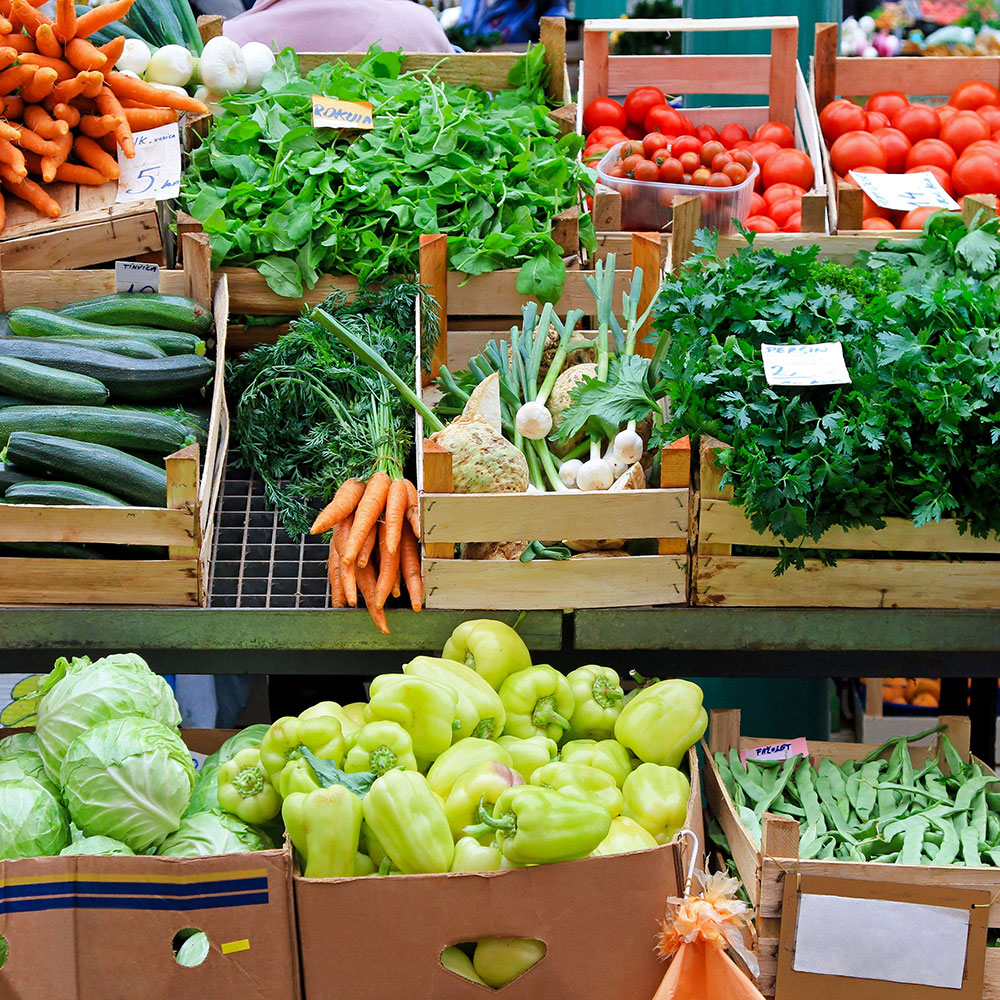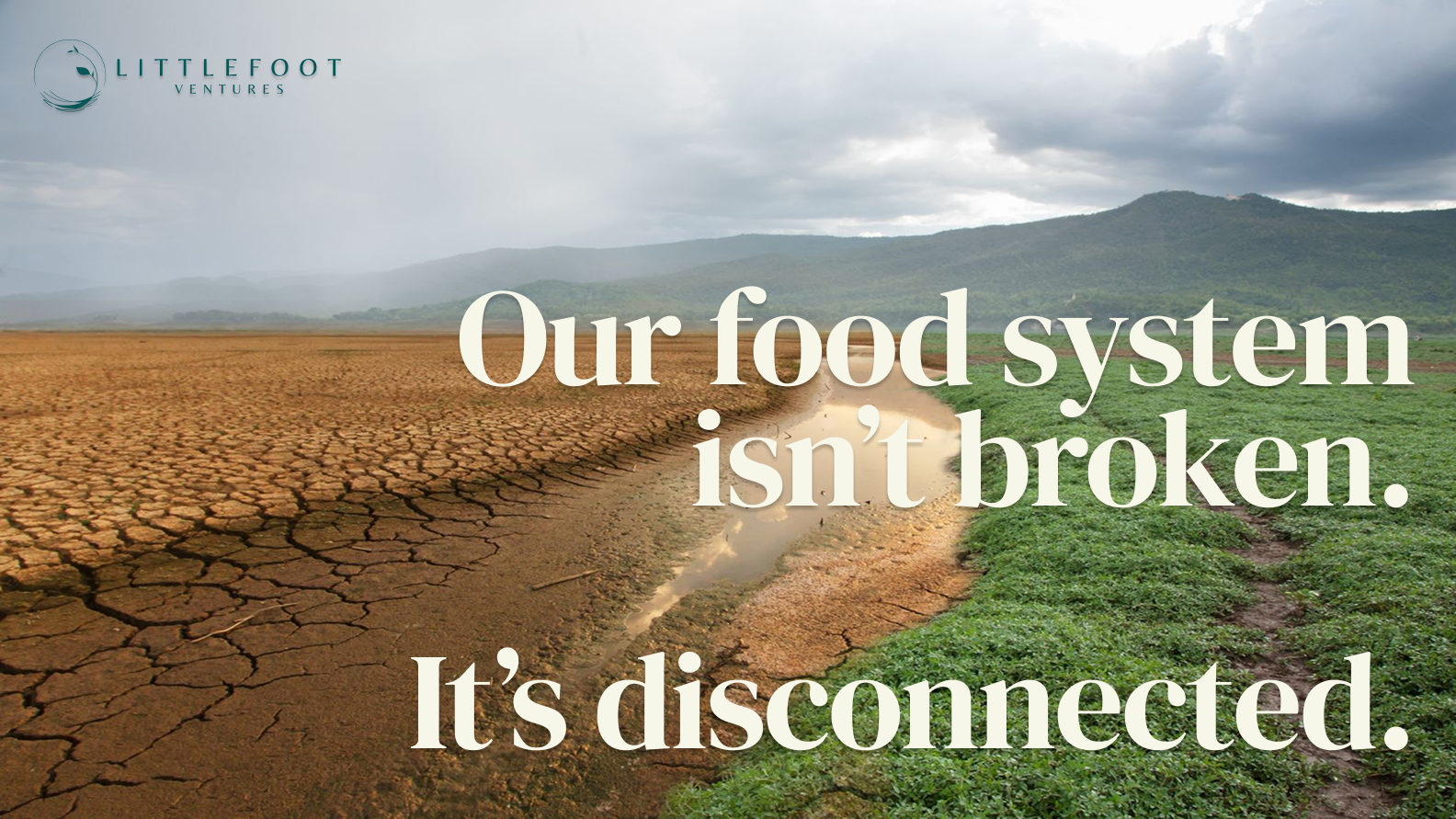Dear Colleagues,
The biggest challenges in our food system—like food waste, climate change, and feeding a growing population—aren’t about who wins. They’re big, messy problems that need all of us working together.
When companies, researchers, nonprofits, and public institutions connect early—before policies or markets push them into competition—they can build solutions that are smarter, fairer, and more resilient.
Right now, a few big players dominate food supply chains. That makes it easy to fall into silos or duplicate efforts. But when we focus on pre-competitive collaboration—especially in key crops like soy, cacao, and wheat—we can unlock shared investments that actually move the needle.
Collaboration doesn’t weaken impact. It multiplies it.
Coalitions are one of our best tools. You don’t need a giant grant to start one. Sometimes just gathering the right folks, aligning on a vision, and sharing what you know is enough to spark real change.
Take the U.S. Food Waste Pact, for example. FMI just became the first trade association to join this national effort, led by ReFED and WWF. With support from Littlefoot Ventures, they’re teaming up with 20+ other food leaders to share data, learn together, and cut food waste across the board.
These kinds of alliances make progress faster and lighter.
At Littlefoot Ventures, we help connect the dots—between people, ideas, and capital. If you’re working on a better food future and need help building partnerships or finding funding, let’s chat.
📍 Are you at the 2025 ReFED Food Waste Solutions Summit in Seattle? I am here, and would love to connect (drop me a note at eva@littlefootventures.com).
I will be recording 4 live bonus episodes of my Everything but the Carbon Sink podcast from the Summit with Governor Jay Inslee (Former Governor, State of Washington), Victor Friedberg (Founder and Chairman, New Epoch Capital, FoodShot Global), Erin Boyd Kappelhof (CEO, Eat Well Global) and Sara Burnett (Executive Director, ReFED).
I’ll also be sharing cards with an exclusive ReFED Summit discount for my Climate Messaging Mastery course to help organizations unlock climate funding for food recovery.
Eva Goulbourne
Founder & CEO, Littlefoot Ventures
The Pulse @ Littlefoot Ventures
🎙️ Everything But the Carbon Sink Podcast
What if reimagining how we grow and fund our food could save the planet?
My podcast Everything But the Carbon Sink explores the intersection of food, climate, and capital, featuring trailblazing experts, real-world insights, and actionable ideas.
Each episode unpacks how innovative funding models and bold partnerships are reshaping food systems to tackle the climate crisis.
Listen to episodes from industry leaders such as Marion Nestle (America’s leading nutritionist), Sara Farley (The Rockefeller Foundation), Saswati Bora (The Nature Conservancy), and more.
Insights for Impact: Our Top Reads
Check out some of the articles that our team has been reading and loving lately.
Upcycling Food Waste: Trends & Predictions
ReFED & Upcycled Food Association
What’s happening in the upcycled food industry—and what should we be looking out for as this popular food waste solution continues to grow? This webinar shares expert insights, including the newly revised Upcycled Certified Standard.
Food Waste Policies in Three Countries: Are They Working?
Food Tank
A new report analyzing food waste policies in South Korea, France, and Peru finds that all three countries have made progress in reducing food waste or increasing food donations through a mix of regulations, incentives, and public education. South Korea achieved a 96% food waste recycling rate through mandatory composting and volume-based fees, while France boosted food donations by banning supermarket food destruction and requiring partnerships with food recovery groups. Peru’s donations tripled after enacting a food donation law, though lack of enforcement and political instability have slowed broader progress. The report concludes there’s no one-size-fits-all approach—success depends on local context, strong public engagement, and making it easier to donate than to discard food.
Making the Business Case for Regen Ag
Regrow
Carbon outcomes remain a critical part of the equation. Companies want to know that regenerative practices can reduce emissions, contribute to climate targets, and meet public commitments. That’s why many companies use carbon outcomes as a primary driver for investment. However, leaders in the industry are also quantifying the value of co-benefits to strengthen the business case for investment. These efforts are most effective when aligned with company-wide sustainability targets—creating internal clarity, enabling cross-functional collaboration, and building momentum for long-term impact.
Corporates still care about sustainability
Food Navigator Europe
Despite economic volatility and geopolitical uncertainty, sustainable finance is growing in the European food and agriculture sectors. This article highlights that corporates are more committed to meeting their sustainability goals, making them increasingly willing to provide input and investment to support farmers in transitioning to regenerative agriculture and climate-resilient practices.
Events
-
Jun 23-25 | Seattle, WA | ReFED Food Waste Solutions Summit
-
June 26-27 | Amsterdam | Sustainable Foods Summit
-
Sep 21-28 | New York, NY | New York Climate Week
-
Oct 28 – 30 | San Jose, CA | GreenBiz Verge
-
Nov 19-20 | Anaheim, CA | Sustainable Agriculture Summit



